- Home
- Lise McClendon
Painted Truth Page 17
Painted Truth Read online
Page 17
“And who trashed you to the Feds,” Carl said.
I shook my head. “Not Wally. He’s like this classic Mormon dad. An Ichabod Crane with eight kids, works in a cheese factory.”
“So what has he got to lose?” Carl smirked.
“Seriously, Alix,” Danny said. “Just because a guy’s got a family doesn’t mean he isn’t desperate enough to kill somebody. Maybe that makes him desperate. Maybe he only meant to scare Ray and something went wrong.”
“Then what about my gun? How would Wally get ahold of it?”
Danny squinted, thinking. “He could have come to town. Broken into your apartment.”
“I don’t see it,” I said. “Wally just isn’t that bright. I met him.”
“Don’t underestimate people, Alix.”
I looked at my hands. Back in Wally’s garage, his pregnant wife puffing with the heavy tarp, the treasure under there. Had I overlooked something in my heady state? Had the prospect of all those Tantros blinded me to Wally Fortney’s motives? Sure, he wanted the money those paintings would bring. That wasn’t criminal. Ray had given him those paintings, Esther had said so. What he did with them was his own concern. He thought Ray was dead.
“So you think Wally set the fire too?” I asked.
“You mean, with Ray?” Danny asked. “He might have. Because the reason for that fire has got to be that Ray wanted everybody to think he was dead. They had to be in it together.”
“Then why’d Ray come back to Jackson? Why risk it?” Carl said. None of us had answers to that. We examined our fingernails for a few minutes.
“How soon before the fire broke out does Scanlon think it was set?” I asked Danny.
“An hour. Maybe more. It wouldn’t take long for the candle to burn through the balloon. Or for the vapor to cool in the attic.”
“We can check alibis, then. Sort of. It would take a while to get the guy in place, squirt the vapor into the attic, set up the balloon.” I paused. “We didn’t tell you what we found at Eden’s apartment.”
“We found nothing,” Carl said.
“That’s right. The valuables were cleaned out, Danny. No TV, no stereo, no microwave or other kitchen gadgets. Very few clothes left.” Eden’s bedroom was in my mind, the mess of sheets and blankets, the pillows indented from sleep. Both pillows. “Do you know if Eden was sleeping with anybody just before the fire?”
Danny looked at Carl, puzzled. “Why ask me? She’s your friend.”
The phone rang in the kitchen. Danny went to get it. Carl sat back in his chair, silent. I glanced at him. “We’re not getting anywhere, are we?”
“I don’t think the cheddar head swiped your gun and set you up,” he said.
“I don’t either. But who else would want Ray Tantro dead?”
Danny came back, standing with his arms crossed. His expression was somber. “That was Jim, my editor. The FBI is looking for the judge to get a search warrant for your apartment.”
I squinted. “I’ve been expecting that.”
Danny nodded. “Jim wants me to see if I can go along. I doubt they’ll let me.”
“Can they search my place if I’m not there?”
“If they have a warrant.”
I stood up. “I guess I’d rather be there. So they don’t wreck the place.”
Carl rose. “Good idea.” He looked grim, his mouth a thin line, and I could almost see the works of his brain turning. We said good-bye to Danny. He promised to call if he found out anything else. He hugged me quickly, as if to apologize for his outburst this morning, and told me to take care of myself.
Carl sat behind the wheel of Paolo’s beat-up Subaru wagon, feeling around on the floor and in the glove compartment. I opened the door, reached inside my jeans pocket, extracting the keys. As I got in he snatched them from my hand. By the time I shut my door we were in the street.
“Where do you want to go?” Carl’s words were measured, but his eyes were troubled.
“My apartment. I guess it’s time to face the music.”
I assumed Carl was concerned about me, but he nodded distractedly; his bottom lip covered the top and the newly shorn skin. I wanted to reach out and touch the soft place under his nose, but his stiffness held me back. I thought of this morning in the shower, and it seemed as far away and irretrievable as yesterday.
He stopped in the middle of the street in front of the gallery, having made record time, reached over, and opened my door.
“You’re taking Paolo’s car?”
“I have to make a phone call. Then I’ll be up,” he said, his words clipped.
“You can call from my apartment,” I said, sticking one foot out on the busy street. Behind us an RV the size of Connecticut chugged fumes into the mountain air.
“Just get out, Alix,” he said, looking back at the traffic.
“Is it something you want to talk about?”
“You want to talk? Okay.” His temper burst through his composure for an instant. “This whole thing was a mistake. I knew that from the beginning. Last summer was a mistake.”
I put my hand on his arm. “No, it wasn’t. What about this morning?”
He shook his head angrily. “You don’t have room for anybody else in your life. You fill up the empty spaces so you don’t feel lonely. But not with somebody who might make demands on you. No. Dead artists are much less demanding.”
He revved the Subaru’s miniature engine, then shrugged off my hand. I climbed out of the car. Carl grabbed the door handle and yanked it shut.
I stood in the street, watching as he peeled out, squealing around the corner in the tin-can Subie that had lost its color a few winters back, not to mention its tire tread and dubious muffler. I was hurt by Carl’s surliness but too preoccupied to let my mind grasp it. The Subaru screeched down the block and careened around the corner, the dull silver paint almost flashing in the weak sunlight. What had I done? I couldn’t even think about it. I wondered if he’d ever be back.
Carl Mendez, I thought as I walked through the gallery and waved to Paolo in a gaggle of blue-hairs, deserved a better car than the old Subaru.
And he deserved better than me.
THE SAAB SISTER was waiting like a debutante for a dance behind the police station in city hall. Before I went up to my apartment I wanted to get her back. I watched her for a good
fifteen minutes before attempting her rescue. Once away from the cops I stopped, pried off all four rust-spotted hubcaps, and checked the lug nuts. Satisfied they were secure, I chucked the hubcaps in the trunk and went to park in the alley behind the gallery. For once no one had parked in my spot.
The roar that preceded what happened next ripped up the narrow alley, bouncing off the painted brick walls of the old buildings. I stood with my key in the lock of the driver’s-side door, trying not to think about what the FBI had in store for me upstairs. My shoulders hurt, my nose hurt, my heart hurt about Carl, and the roar startled me. I jerked my head up and there he was, all in black with mirrored visor on the bubble helmet, leather and chains and Harley. I fumbled desperately with the key in the lock, and by that time the motorcyclist was right there, next to me, his heavy black boot extended, knocking my feet out from under me. The pain shot through my ankles, up my back, coinciding with the terrible noise of the cycle. I opened my mouth to shout, flailed my arms, still clinging to my keys and backpack, but felt nothing but the high pitch of confusion, the falling, falling. I landed hard on my back. My spine jolted, my skull crashed on the asphalt, and the roar was gone.
16
WHEN I OPENED my eyes, Paolo had his hand on my forehead. He smiled at me, concern in his eyes. I struggled to sit up as he put his arm around my shoulders.
“What happened? I heard a motorcycle when I was coming back to empty the trash,” he said. “You fall down?”
I did a quick body inventory and found a large bump growing on the back of my head. Twisting my shoulders, I felt my back. It was sore but not incapacitated. One anklebone
had a large bruise, growing a lump. I stood up with Paolo’s help.
“The biker from hell,” I said, looking down the alley. On the street babies hollered in strollers, kids whined, blue-hairs paused to look at the flowers, all oblivious to bikers and their menace. I shivered, imagining the alley as another world, separated from the idyllic grace of vacation by some invisible wall. Had the cyclist just vanished into that crowd without making a ripple?
“A biker?” Paolo looked behind him at the street, then spun to look the other way down the alley. “Where did he go?”
I picked up my keys, slouch hat, sunglasses, and backpack from the street. “I was looking at the sky. Well, stars anyway. I couldn’t have been out long.”
He looked into my eyes, examining me. “We better take you to a doctor. They say if you pass out, go see the doctor.”
“It’s just a bump, Pao.”
“Well, come sit down inside for a while.”
I followed him into the gallery and sunk into my office chair while he brought me a glass of water, as if that would help my possible concussion. I drank it anyway while he told me his news.
“The cops were here for an hour, asking questions,” he said.
“I’m sorry, partner.” I glanced into the empty gallery. “Did they scare everybody away?”
“Everybody but one. That friend of yours, the ski bum. Pete.”
“What did he want?” A picture formed in my clotted mind of Pete in the towel with his screaming white chest and that dodo look on his face. I felt sick. Maybe I did have a concussion.
“He wants one of the Tantros. He offered, swear on Mother Mary’s holy grave, he offered me twenty-five thousand bucks for the one called Gloria”
“Get out of here.”
“On the soul of my father. I didn’t think he was serious, but he sure looked like it. What’s the story on him?”
“His brother’s some investment banker or something. He must be making an offer for him. Those paintings aren’t for sale anyway.”
“They could be. The Met hasn’t bought them. Maybe they won’t. Maybe the cousin will sell them.” He lowered his voice as the doorbell tinkled in the gallery. “Can you talk to the cousin? Talk some sense into him?” He looked over his shoulder at the customers, then got that puppy-dog-pleading look on his face. “Just think what that sale would mean to us, amiga of mine. Just think.”
I told him I would try. I wanted to talk to Wally Fortney again anyway. A piece of my mind begged to be given to him, a huge, unrepentant piece. How dare he imply to the cops that I wanted Tantro dead? I hadn’t said that. Not exactly.
The amount Pete Rotondi had offered was extravagant. But what was twenty-five thou to a hotshot on Wall Street who probably brought in five mil in an average year? What had someone just told me? Don’t underestimate people, Alix.
DESPITE MY IMPULSE for revenge on the biker, I realized there was little I could do but report the incident to the police. And Charlie Frye was the last person I wanted to see today. So instead of waiting for the federal search warrant to come through (hopefully the judge was out fishing on this fine Sunday afternoon), I got back in the Saab Sister and hit the road.
The high mountain sun grew brighter as I traveled south. The weather in Star Valley was a good ten to fifteen degrees hotter than Jackson. I had a headache but took a couple aspirin and brought along a huge iced tea from my refrigerator. The sun shone here, relentlessly. Waves radiated off the asphalt on Cedar Street. Dixie answered the door, face dripping with sweat, holding her swollen belly. She said Wally was in the backyard and shut the door without niceties.
The sound of a mower coming to life drowned out my footsteps on the concrete driveway. I walked gingerly, with a tender ankle and a backache from my fall. The house and yard, despite toys, balls, bicycles, swing sets, and baseball bats, displayed a careful neatness that I had seen in the deliberate rows of canned food in the garage. The lawn where Wally was pushing the old mower hardly needed a mow; the edges were trimmed around the chain-link fence in the back, the picket fence in front. A pile of toys sat on the sidewalk, picked over by five kids ranging in age from five to fourteen, who were putting them away in the open garage.
The oldest child, a lanky boy with huge feet and a sun-bleached crew cut, frowned when he saw me by the chain-link gate, waiting. I smiled and pointed to his father. The boy glanced at Wally, then walked in long strides toward him.
Wally cut the motor of the mower, mumbling a few words to the boy, who promptly went back to work. Ray Tantro’s cousin was dressed in old khaki slacks that hung from his bony hips, and a short-sleeved shirt that revealed his freckled, ropy arms.
“Is there somewhere out of the sun we can talk?” I asked. Even with my hat, the sun baked my face and shoulders, draining what energy I hadn’t blown up in the alley. Wally led the way to a cellar door. We walked down three steps into the dark, cool air.
“My summer hideaway,” he said. “Course, we all use it in August. The heat’s really getting to Dixie.” He looked up at the unfinished ceiling, the beams close overhead. The room was his workshop, a tool bench stretching across one end, concrete floors, no windows, but cool. “Guess you were right about Ray.”
I stuck my hands in my jeans pockets, now wishing I’d worn shorts. “Not for long.”
Wally pulled out a handkerchief and wiped his face. “This doesn’t change anything with the museum, does it?”
I took off my hat and ran my fingers through my damp hair. The goose-egg bump hurt. “I doubt it. Ray’s still dead. The paintings are still Ray’s, or rather were. And now they’re yours.”
He nodded, businesslike. I had to wonder if he felt anything for his dead cousin. Used to working with artists and Latins like Paolo who tell you their feelings in no uncertain terms, I felt at a loss reading regular guys like Wally. Maybe mowing the lawn was how he dealt with grief. At least Grandma would have approved. There were worse ways to grieve.
“I hung the paintings in the Second Sun and somebody made an offer on one,” I said. “I know you offered them to the Met, so we told him it wasn’t for sale.”
“How much?”
“Is it for sale?”
“Depends on how much.” He looked up again as footsteps crossed the floor; muffled voices filtered down. “How much?”
“Twenty-five thousand. For Gloria.”
Wally stopped fidgeting. He stared me in the eyes, checking. I stared back. “I thought you said a hundred,” he said finally.
“I said no guarantees, Wally.” He watched the children through the open door for a moment.
“Is twenty-five serious?”
“It could be. Sometimes we get wild offers if something isn’t really for sale. It’s safe that way.” I waited for him to tell me to sell it. I knew he would. His tongue worked against the inside of his cheek, impatient to yell, to collect. “Did you discuss money with the Met?”
Wally shook his head. “I figured we’d get to that later.” He rubbed his temples. This kind of transaction was clearly not his everyday cup of tea.
A wail began upstairs, muffled at first, then louder. As it rose it became “Waaaalllleeee!” The recognition transformed his face. He plunged awkwardly for the door, out into the blinding sunlight.
I found them in the kitchen. Dixie lay on the floor, clinging to an overturned chair. Wally knelt beside her, asking her over and over what was the matter. She couldn’t speak, just clung to the chair, then to his arm. Big-eyed children, the same three I had seen the first day, watched from the hallway.
“Is it time? Can it be time?” Wally said into her wild eyes. Dixie wore a big flowered housedress and no shoes, her hair soaked with sweat. “It’s too early, honey. Too early.”
Dixie moaned, clutching her belly again, a grunting agony passing through her. I stood by, helpless, until it was over and Wally stopped his constant mumble that seemed to help her through the contraction. “Should I call a doctor?” I asked.
Wally put his arm
under her shoulders, cradling her. “She’s always had the babies at home with a midwife. I helped. But now I don’t know.”
“I’m calling an ambulance.” I looked around the kitchen for the telephone and found it by the door, on the wall. I dialed 911 and gave them the address. “They’re coming, Dixie, hold on.”
I WAITED WITH the children. The older ones reassured me I could go, that they would all be fine without my supervision. The younger ones dragged me onto the swing set. Rosie, the two-year-old, wore my Ray-Bans for about thirty seconds before she dropped them in the sandbox.
The call came less than an hour later. Dixie had a four-pound boy in the Star Valley clinic operating room within minutes of her arrival. He was underweight and six weeks early, but seemed to be holding his own.
The kids piled into the Saab Sister and gave me directions to the clinic. When we reached the stolid, sun-bleached brick building, they rushed to their mother’s side, against the admonitions of a nattering, overweight doctor. Wally held Rosie in the hall.
“Congratulations,” I said. There was so much I had to talk to Wally about, things that needed to be said. He nodded, exhausted. Little Rosie buried her face in his neck.
“About Ray,” I began. “When did you last see him?”
“Ray’s dead. He’s gone.”
“I know, but…”
“It’s bad luck to talk about the dead,” he said, looking through the open door at his big, busy family. Dixie was receiving pats and strokes and kisses.
I had to know something that would bring him around. Something to help me find Ray’s killer. No one else cared for Ray. Esther wouldn’t help. I searched my mind, staring at the gray tile floor of the clinic, a small medicinal outpost.
“Why did you tell the FBI I wanted to make sure he was dead?” Thin ice here, thin ice. I held my breath.
Wally squinted at me, disgusted. “Because that’s what you said. You said, what if he’s not dead? Like you knew.”
“I didn’t know, Wally. I felt, you know, with my intuition, that he wasn’t dead.” I paused, taking a breath. “I found him.”
Wally said nothing. He patted Rosie’s back, comforting her. She wiggled and he set her down on the floor. She streaked toward her brothers and sisters, squealing.

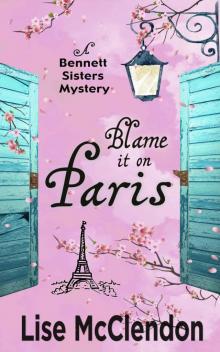 Blame it on Paris (Bennett Sisters Mysteries Book 7)
Blame it on Paris (Bennett Sisters Mysteries Book 7)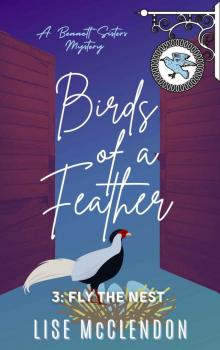 Birds of a Feather: 3: Fly the Nest (Bennett Sisters Mysteries Book 16)
Birds of a Feather: 3: Fly the Nest (Bennett Sisters Mysteries Book 16)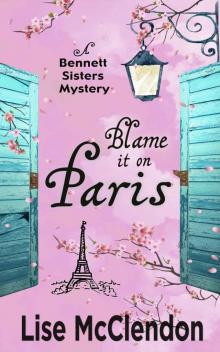 Blame it on Paris
Blame it on Paris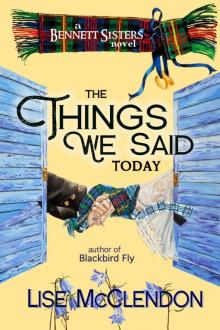 The Things We Said Today
The Things We Said Today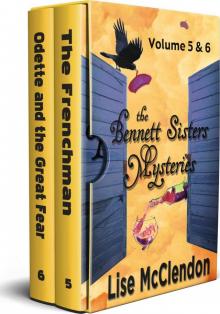 Bennett Sisters Mysteries Volume 5 & 6
Bennett Sisters Mysteries Volume 5 & 6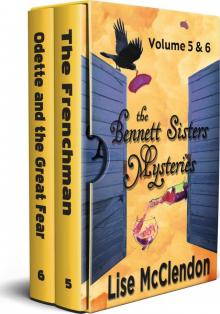 Bennett Sisters Mysteries Box Set 2
Bennett Sisters Mysteries Box Set 2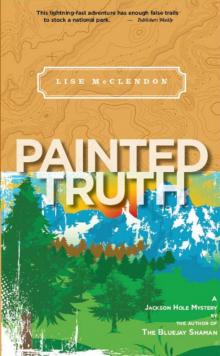 Painted Truth
Painted Truth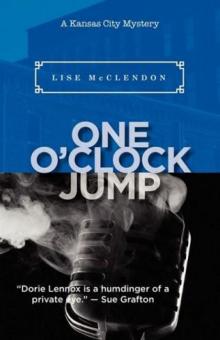 One O'Clock Jump
One O'Clock Jump The Bluejay Shaman (Alix Thorssen Mystery Series)
The Bluejay Shaman (Alix Thorssen Mystery Series)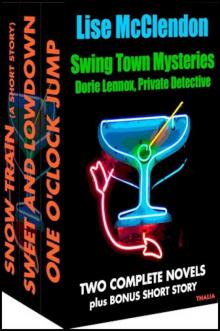 Swing Town Mysteries Dorie Lennox Box Set
Swing Town Mysteries Dorie Lennox Box Set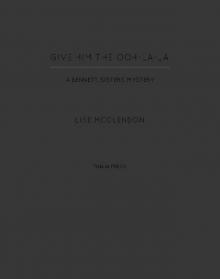 Give Him the Ooh-la-la
Give Him the Ooh-la-la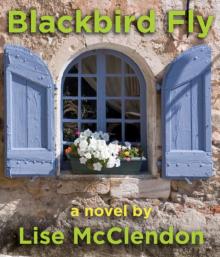 Blackbird Fly
Blackbird Fly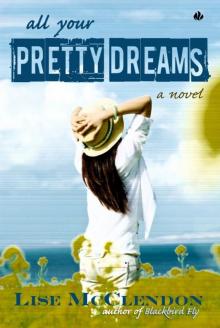 All Your Pretty Dreams
All Your Pretty Dreams Nordic Nights (The Alix Thorssen Mysteries)
Nordic Nights (The Alix Thorssen Mysteries)